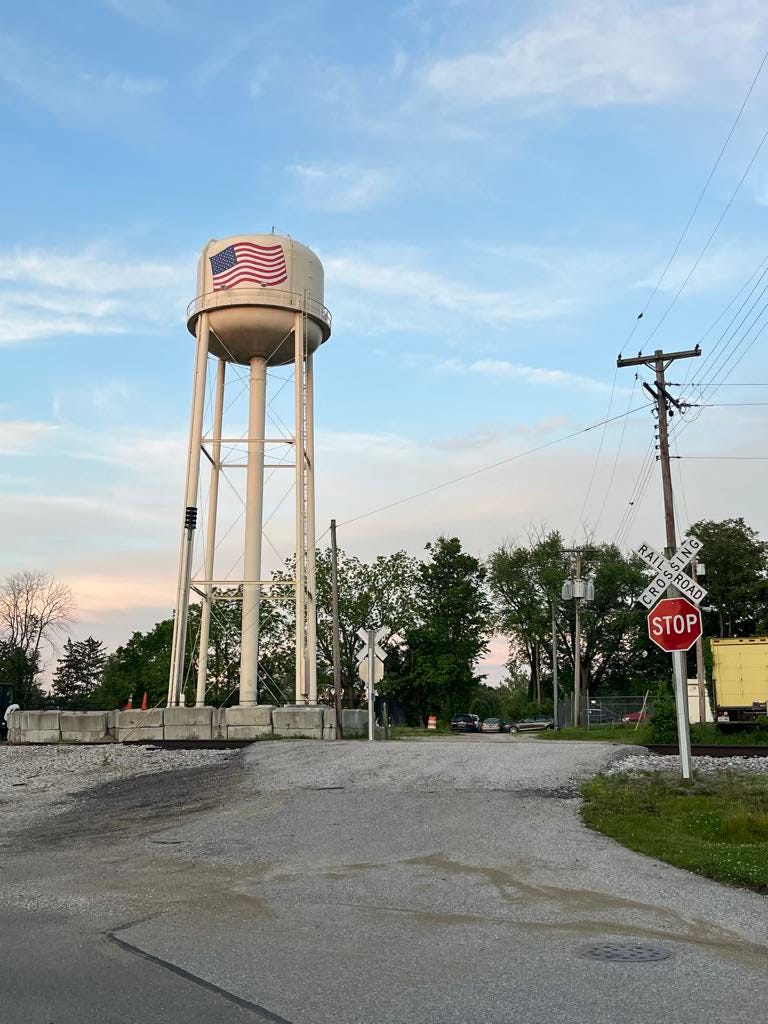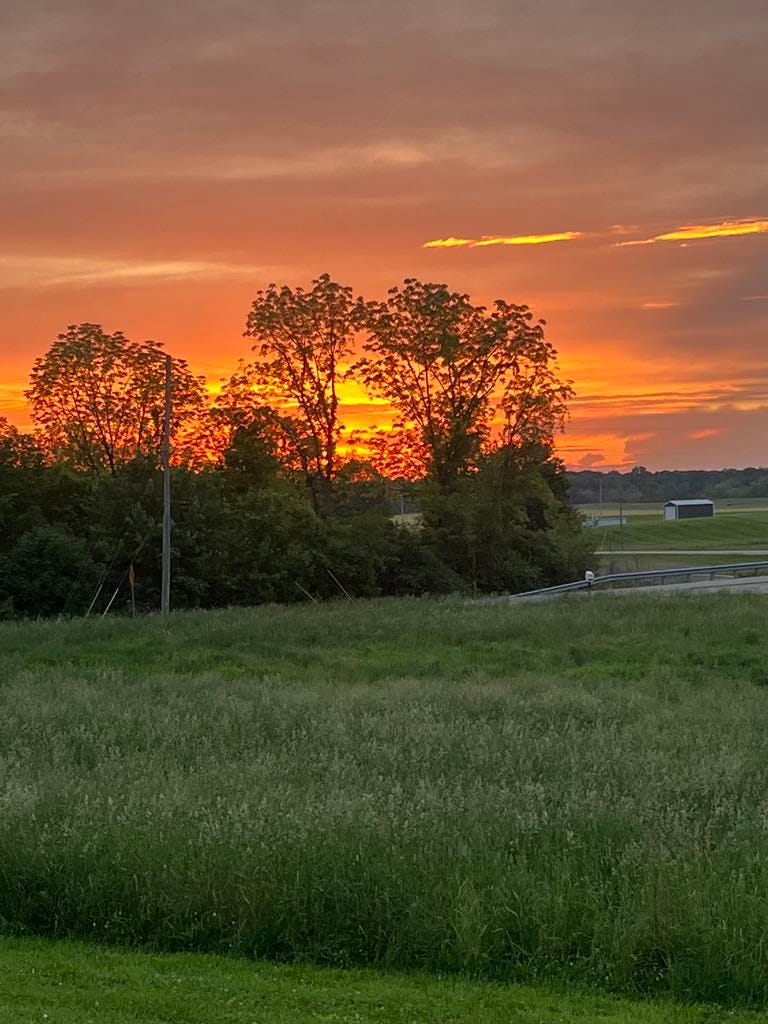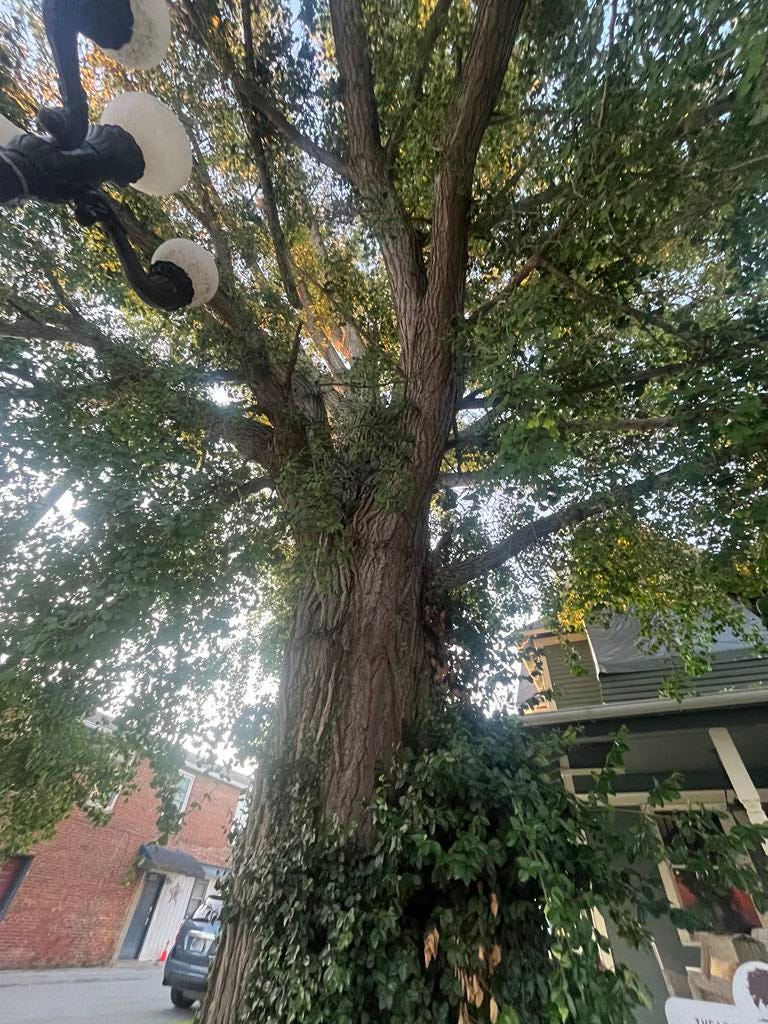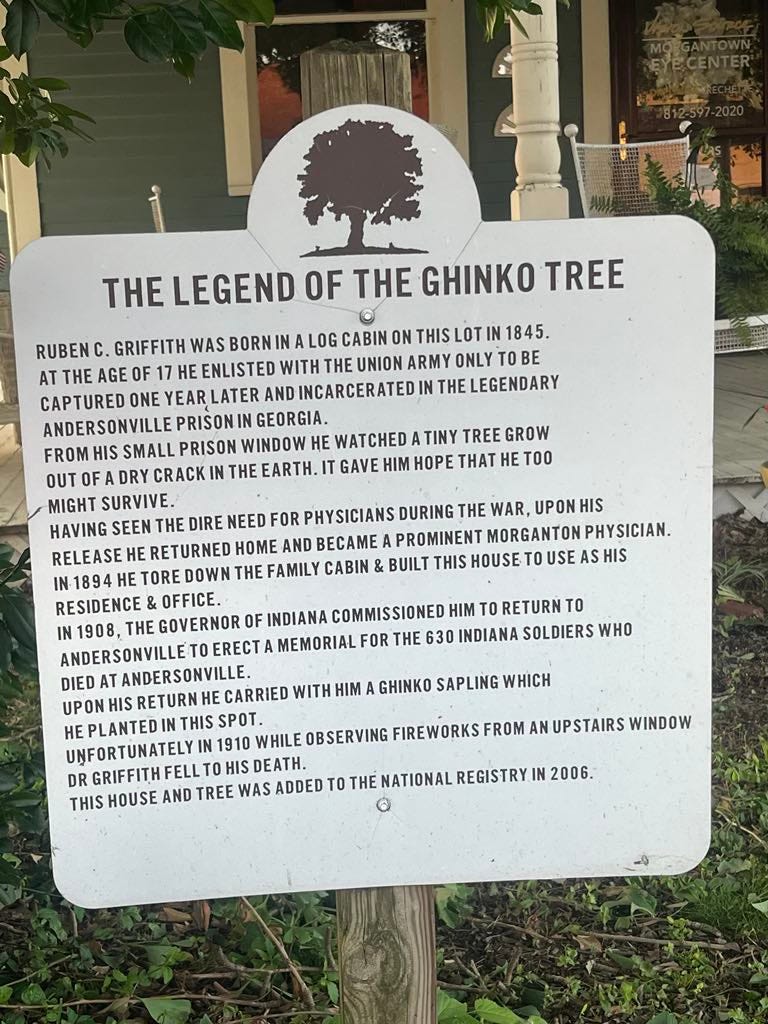I like a good walkabout. It’s one of my favorite things in the world, and I try to get one in most days. I especially love a good walk around when I’m in a new place, or out of town, or in places that have a nice walk to take.
I’ve had reason to spend some time in Morgantown, IN a few times over the last two years. Morgantown is a town of about 2,000 people, just south of Indianapolis, 40 minutes drive from Bloomington and everywhere else. There’s no grocery store. One gas station. Two restaurants, both of them local owned and one of them a Mexican restaurant. There’s one bar and one bank. There’s a Dollar General, of course there is, and a library with weird hours.
Morgantown is the idyllic epitome of small town America. The kids ride bicycles up and down the streets, and their parents follow behind them and cruise around town in golf carts. There are people sitting on the front porch every evening on every block. Dogs run loose and get back home with no hassles and the cops wave to you like they’re your friends when you drive by them. Nearly every home has an American flag. The cemetery on the edge of town is pristine. The water tower stands proud. I saw a Memorial Day Parade there once and the whole town showed up to a post card sized parade and Memorial Day-ed just as good as anyone I’ve ever seen.
Morgantown, IN is a nice place to take a walkabout, especially at dusk, where the hills and woods of South Indiana provide for nice sunsets every time the sun is visible when it makes its daily descent. The people all say “hi” to you from their front porches as you walk past, and on their busy main strip through town there’s an old big house with a beautiful giant tree and a memorial plaque. I’ve stopped to admire the tree and read the plaque a dozen times now, and it set me off on an adventure reading about the life of Dr. Reuben C. Griffith.
The photo of the memorial plaque (at the end) will tell you the bulk of what I’m telling you here, but you can’t give a good human’s life justice with just a paragraph or two on a sign, and Dr. Griffith seemed like the type of human we should admire.
He grew up in Morgantown in a log cabin, and during the Civil War he enlisted at 17 and served alongside thousands of Indiana troops in the Union Army of the North. Reuben C. Griffith was captured and incarcerated at the Andersonville Prison in Georgia. They say that over its 14 months of operation, the Andersonville Prison held 45,000 Union troops, and over 13,000 of those didn’t make it out of the jail. The leading causes of death were scurvy, dysentery, and diarrhea. The dead are buried nearby in a cemetery and that and the prison site is now a national park and the home of the National Prisoner of War Museum. I’ve never been, yet. Only read about it.
630 soldiers from Indiana were amongst the 28% causality rate, and an article that I found online about Dr. Griffith says that he weighed 140 pounds when he entered the prison and was only 70 pounds when the internment camp was liberated in May of 1865. The descriptions that I’ve read from first hand accounts written by union officers that were there when the camp was freed, those descriptions can only be compared to the jewish death camps in Nazi Germany. The accounts called the camp “hell” and said that they found no surviving men there, only skeletons and shadows of former men still breathing. They say that the stench of the place could only be described as what hell must be like.
Reuben C. Griffith, in later recollections of his time in the Andersonville Prison, says that there were nights that he didn’t think he would survive til morning, and on one particular night that he was cared for by two African American prisoners who propped him up and stayed with him throughout the night to make sure all three made it to sunrise. At one point during his incarceration, Griffith noticed a Ghinko tree growing through a dry crack in the Earth, and that inspired him to survive. If a tree could grow in these environments, then he figured he could survive them, too. When he was rescued he’d lost all of his teeth due to scurvy.
When he was liberated and restored to health and back home in Morgantown, Griffith started studying with a nearby doctor to learn the trade of medicine. He’d seen the need for good doctors during the war, and reports say that Dr. Reuben C. Griffith was a good doctor that provided exemplary medical care as the only doctor in Morgantown for many years. He tore down his family log cabin and built a large house that could accommodate his hime and his practice, and in 1908 the Governor of Indiana asked him to return to the site of Andersonville Prison to erect a monument for the 630 Indiana Union soldiers that had died there. Dr. Griffith did, and when he returned he brought back a Ghinko sapling that he planted to honor the tree that inspired him to survive his time in hell on Earth. That tree still stands, as does his old home and office. Sadly, two years after he’d planted the tree and dedicated the memorial to his fallen comrades, Dr. Griffith fell out of a second story window of his home while watching fireworks, and he died due to his injuries in 1910. There is no date listed for his death, only the year.
Every time I have reason to visit the little idyllic American town of Morgantown, I stop by the tree and home on one of my walks, and I say my prayers of respect, hope and grace there, in front of this big, beautiful and magnificent tree that still stands as a living memorial of resilience and fortitude, of human compassion and community love. This tree that was planted with so much honor, circumstance and hope. This tree that was planted by hands that never got to see it grow much. This tree that stands glorious. This tree that’s as pretty as any other I’ve ever hugged. This tree that’s seemingly ignored by everyone else, always seems to me to be the saddest tree in the world, but even sad things sing beautiful songs if you listen.
I hope Dr. Reuben C. Griffith’s Ghinko tree lives forever in Morgantown, IN, and that there’s always a sign next to it to make sure that the good doctor, and the importance of that tree are never forgotten.
Love,
Dan
Ps. Catch you all later. I’m off for a midday walkabout. Come see me tonight in Toledo with the Summer Anime Girl Appalachian Resistance Tour. NOTE THE TIME CHANGE FROM 6 TO 7PM.








Damn, Dan, thank you.
"Even sad things sing beautiful songs if you listen." ❤️❤️❤️